Solubility Test and Analysis of MK-2866 in Olive Oil
When preparing homemade solutions, olive oil is undoubtedly a convenient and relatively safe solvent choice. With that in mind, we decided to evaluate its ability to dissolve 1 gram of MK-2866 (Ostarine) in this experiment to determine whether it’s up to the task.
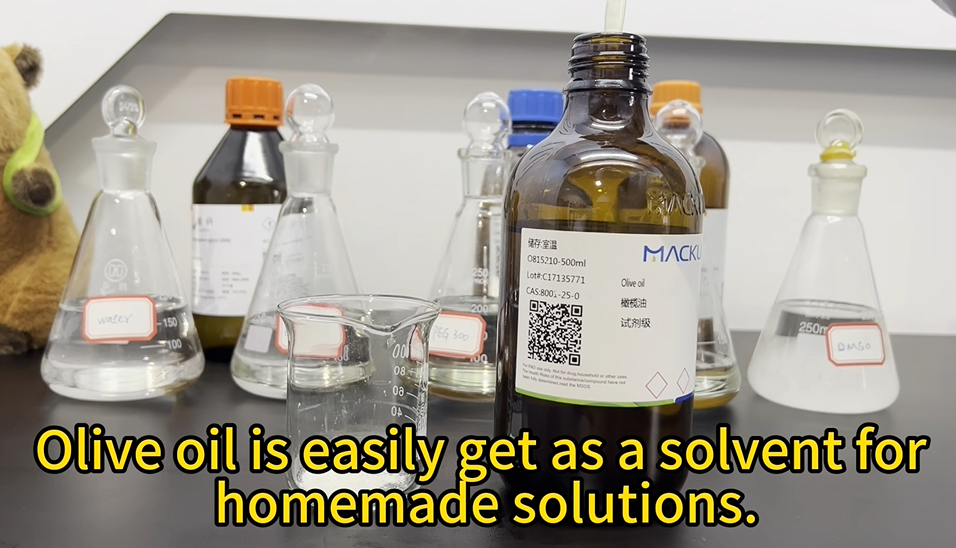
Initial Test: 1ml Olive Oil
We began the solubility test with 1ml of olive oil. However, the result was disappointing—there was absolutely no sign of dissolution after adding the MK-2866 powder. The compound remained in its original powder form, and neither letting it sit nor stirring made any difference. This strongly suggested that olive oil might have limited dissolving capability. To further confirm, we increased the amount of solvent.
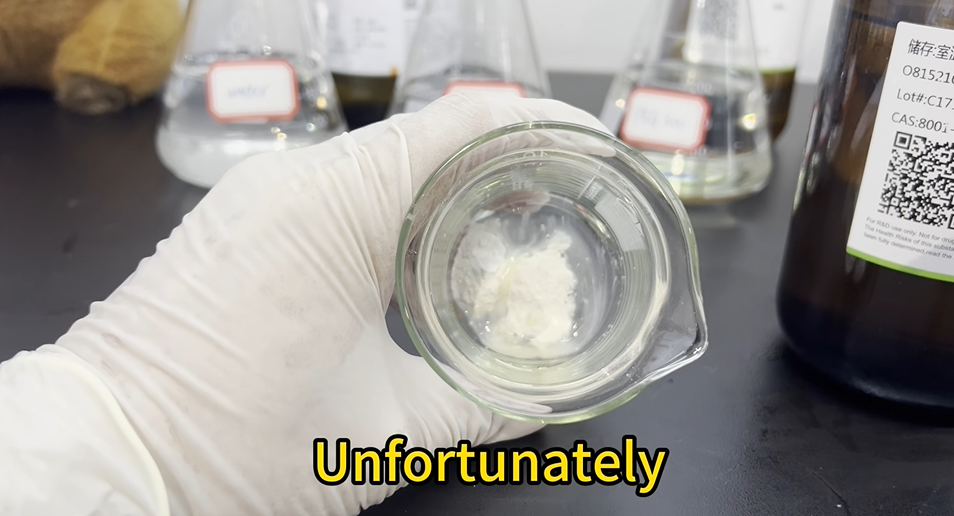
Further Test: Increased to 5ml
Next, we increased the olive oil volume to 5ml and thoroughly stirred the mixture. The result? The mixture became thicker and took on a paste-like consistency. The powder was evenly distributed throughout the oil, but it did not dissolve to form a clear solution. This behavior indicated that MK-2866 was merely suspended in the oil—not dissolved.
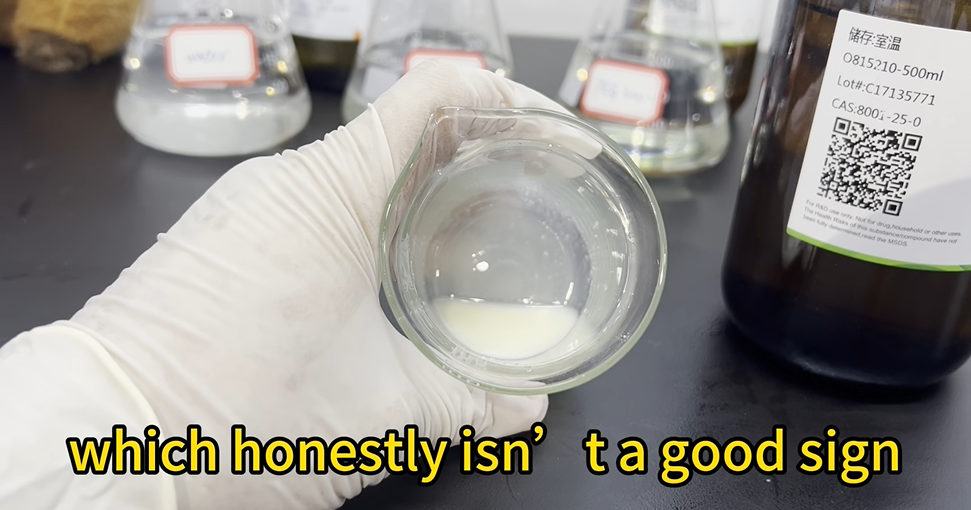
Extended Test: Increased to 20ml
Given the poor solubility performance, we then upped the olive oil quantity to 20ml and stirred it again. Unfortunately, the appearance of the mixture remained virtually identical to the 5ml test—thick and cloudy, with no visible signs of actual dissolution. At this stage, we started to suspect that olive oil might simply not be a suitable solvent for MK-2866. Still, we proceeded with one final trial to be sure.
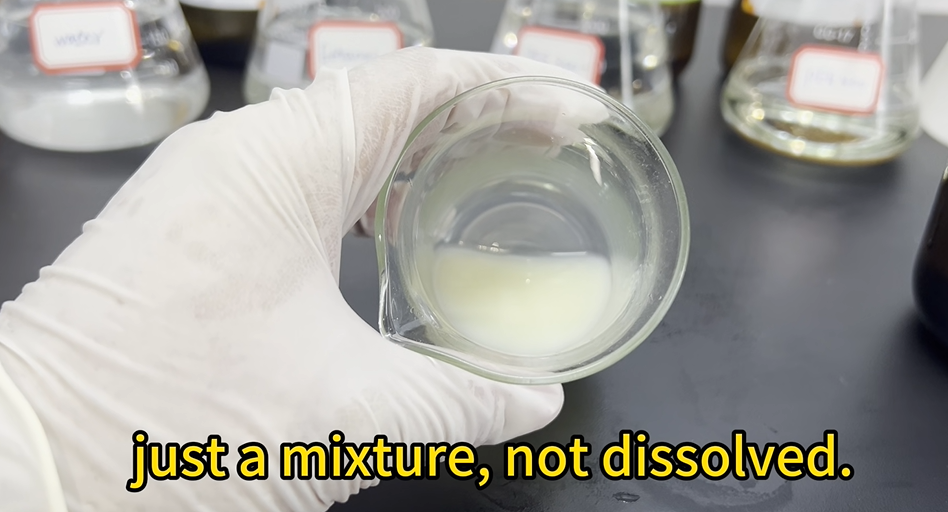
Final Test: Jump to 50ml
To give olive oil one last chance, we increased the volume all the way to 50ml. After thorough stirring, the solution appeared pale yellow and cloudy. Some of the powder still floated in the liquid, and the transparency showed no improvement. This clearly demonstrated that even with a 50:1 solvent-to-powder ratio, olive oil could not effectively dissolve MK-2866.
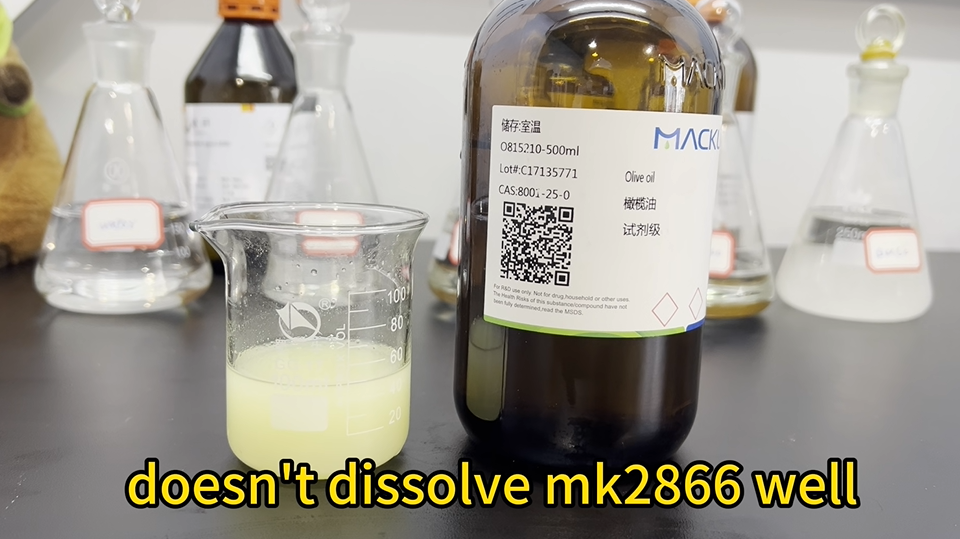
Conclusion: Olive Oil Is Not a Suitable Solvent for MK-2866
Based on the complete set of experiments, we can confidently conclude that olive oil is not a suitable solvent for MK-2866. While it is easy to obtain and generally stable, its solubility capacity for compounds like MK-2866 is extremely limited. Even at high volumes, the compound fails to dissolve and only forms a suspended mixture. This means that any formulation using olive oil as the solvent may significantly compromise the bioavailability and effectiveness of MK-2866.
